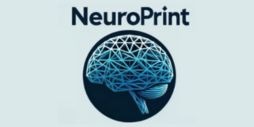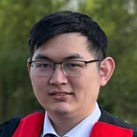NeuroPrint aims to revolutionise neurosurgery education through a 2-stage innovation focused on creating and globally distributing 3D-printed, patient-specific neurosurgery training models. Initially, the project will establish a 3D printing lab at Queen Square Hospital to produce models for their specialised neurosurgery training courses. The subsequent phase will develop a platform for worldwide distribution of these models, coupled with a telepresence communication programme to enhance interactive learning and teaching among neurosurgeons globally.
Founding team
Abellona U
Dr Abellona U is currently a medical student at Cambridge. Prior to the medical degree, she did a PhD in Clinical Medicine Research following an MRes in Biomedical Research and BSc in Biology, which were all completed at Imperial College London.
Her PhD was on identifying metabolites in blood or urine that may be used for detecting hepatocellular carcinoma (cancer of liver cells) earlier.
Aside from her academic endeavour, she has been involved in multiple award-winning healthcare/health tech startups: UK-based Ideabatic, which designed an improved vaccine carrier box for delivering vaccines to remote areas; Hong Kong-based Senior Deli, providing tailored soft meals for the elderly and people with swallowing difficulty; and Boston-based myPeriod, developing a non-invasive at-home test kit for diagnostic or monitoring purposes for people who menstruate.
She has a keen interest in global health, currently serving as the Co-President of the Students for Global Health student society and the Co-Director of Cambridge WHO Simulation, which will be held at King’s College in November 2024.
Sylvia Ling
Dr Sylvia Ling is currently a Foundation Doctor at Addenbrooke’s Hospital.
She aspires to a career in trauma, surgery and academia. She enjoyed a number of leadership roles in the past including a wealth of surgical education leadership whilst student.
Coming from Malaysia and received medical training at Ireland, she is adept at working in multicultural environments with teams and patients with different backgrounds and values.
Ultimately, she hopes to serve humanitarian settings.
Outside of Medicine, she likes travelling, trying different workouts and anything related to the Arts, including martial arts.
Danny Chen
Jia-En Chen (Danny) is a dedicated researcher and educator in medical physics and bioengineering, currently pursuing an MPhil/PhD at University College London.
With a robust academic foundation, he holds a Master of Science in Automation and Control from the National Taiwan University of Science and Technology, and a Bachelor of Science in Public Health from the National Defense Medical Center in Taipei.
Danny has extensive experience in the medical field, having worked as a lecturer and researcher at the National Defense Medical Center, where he teaches Python programming and medical 3D printing. He has contributed significantly to clinical research and medical education, particularly in the application of 3D printing technology. His international exposure includes time at the Harvard-MIT Bio Academy and observership at Boston Children’s Hospital, enriching his global perspective on medical innovation.
Danny’s research has been published in prestigious journals, highlighting his expertise in rapid pre-surgical preparations and innovative 3D printing applications in medicine.
Beyond academia, Danny has founded the Medical Fablab NDMC, a pioneering makerspace that supports medical innovation.
His work has earned him numerous awards and honors, underscoring his commitment to advancing medical technology and education.





